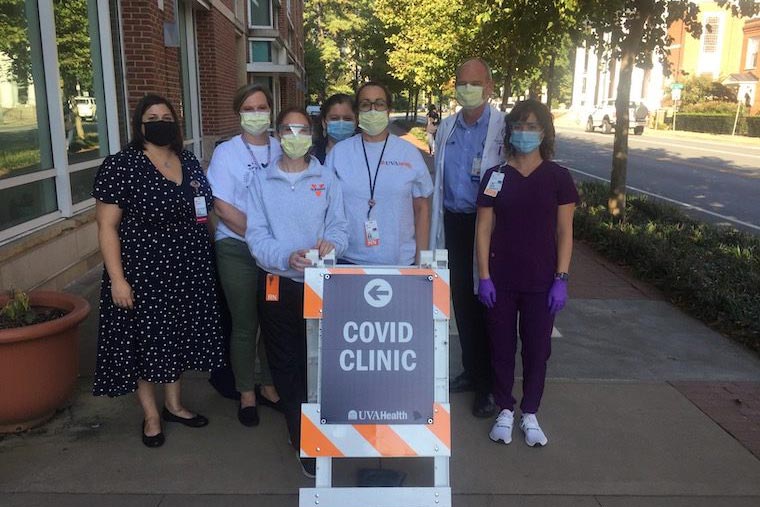An antibody cocktail being tested at UVA Health and other sites was able to block 100% of symptomatic COVID-19 infections among people exposed to the virus, early results from the clinical trial suggest.
In addition, those who developed asymptomatic infections accumulated far less virus in their bodies than usual and saw their infections resolve within a week, according to interim data released by the cocktail's manufacturer, Regeneron Pharmaceuticals.
"This is the first treatment shown to prevent COVID-19 after a known exposure, and offers protection for unvaccinated individuals caring for a family member with COVID-19," said UVA Health's Dr. William Petri Jr., one of the leaders of the trial at UVA. "We expect that Regeneron will file for emergency use authorization from the FDA so that this drug can be used outside of the context of a clinical trial."
Antibodies for COVID-19
The phase 3 clinical trial aims to determine if the antibodies will prevent COVID-19 infection in people who have been exposed, but not yet developed the disease. This is known as "passive immunization."
Regeneron's new analysis, which has not yet been published in a scientific journal, looked at outcomes in more than 400 trial participants. Of 186 people who received the antibodies, none developed symptomatic COVID-19. Of the 223 who received a placebo, eight developed symptomatic COVID-19, the company reports.

Asymptomatic infections occurred in 15 of the antibody recipients and in 23 of the placebo recipients. Overall rates of infection, including both symptomatic and asymptomatic infections, were approximately 50% lower in the antibody group.
Among those who developed infections, placebo recipients had, on average, a peak viral load (the amount of virus in the body) that was more than 100 times greater than antibody recipients. The antibody group also recovered more quickly - all the infections resolved within seven days, while 40% of infections in the placebo group lasted three to four weeks, Regeneron said.
The cocktail also appears to shorten the duration of viral shedding, the time when the virus is being manufactured in the body. The viral shedding period was nine weeks among antibody recipients and 44 weeks among the placebo recipients. While people with COVID-19 are not infectious for this entire time, reducing the duration of viral shedding may shorten the period when they can spread the disease.
There were more adverse events reported among placebo recipients than among antibody recipients - 18% and 12%, respectively. Regeneron attributed this to the larger number of COVID-19 infections in the placebo group.
There was one death and one COVID-19-related hospitalization in the placebo group and none in the antibody group. Injection-site reactions were reported among 2% of both groups.
"We are profoundly grateful to the nurses and staff of the UVA COVID-19 clinic, led by Dr. Debbie-Anne Shirley," Petri said. "Their day-to-day support made our participation in this trial possible."
About the Clinical Trial
Phase 3 clinical trials such as the one under way at UVA examine the safety and effectiveness of new drugs and treatments in large numbers of people. Positive results in the phase 3 trial could spur the federal Food and Drug Administration to make the antibody cocktail available for post-exposure COVID-19 prevention.
The antibody cocktail is not a vaccine and is not expected to provide permanent immunity to COVID-19.
The team conducting the study at UVA is led by Petri and Shirley and includes Dr. Gregory Madden, Chelsea Marie, Dr. Jennifer Sasson, Dr. Jae Shin, Dr. Cirle Warren, Clinical Research Coordinator Igor Shumilin, assistant Rebecca Carpenter, and COVID-19 Clinic nurses Michelle Sutton, Elizabeth Brooks, Danielle Donigan, Cynthia Edwards, Jennifer Pinnata, Samantha Simmons and Rebecca Wade.
To







